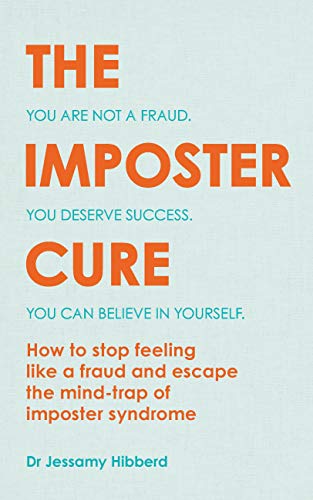I felt like an imposter for most of my life. My first clear memory of it comes from childhood. I won a full scholarship to a fee-paying school and spent the following years thinking that I didn’t belong.
All of my close friends had both parents living at home, and many of them were wealthy. They came to school in cars that started without a push, and they went on expensive holidays. Despite good grades and sporting accolades, I felt like I didn’t deserve to be there.
My sense of imposter syndrome got worse when I won a place at Oxford University. There, I met people whose fathers were diplomats in Africa, or whose mothers had studied at Oxford themselves. I was from a single-parent family in Liverpool. My dad was a retired shipping clerk while my mum had worked at an array of jobs, but never had a career.
The next rung on the ladder of my social climb was also the final straw. I got a job as a political journalist, working in Britain’s Houses of Parliament. So I traveled with prime ministers and reported on wars and terrorist attacks. I’d got the job on merit, but I never felt good enough. I was always waiting to be found out.
Identify the Imposter
No surprise, then, that I did what any “imposter” would do in those circumstances – I overcompensated. I worked long hours, took on too much, abandoned my personal life, and wreaked havoc on my health. I drank to excess, overate, and exercised compulsively. By my mid-thirties, I’d burned out.
Which is why Dr Jessamy Hibberd’s book “The Imposter Cure” spoke to me so much. I recognized myself in the case studies of her clients, and in her descriptions of people who go through life feeling like a fraud on the inside, while performing well on the outside.

Her exploration of the causes of low self-esteem, insecurity, and self-doubt especially struck a chord and took me way back – to the day I came home from school with a report card that boasted a string of A grades and one solitary B.
Dad asked, “What happened here, love?”
I see now that he was probably poking fun at me. He wasn’t a stern man. But in that moment, I understood that my results hadn’t been good enough. Must do better. Have to work harder. Must achieve 100 percent.
Break the Perfectionist Cycle
The seed of perfectionism was planted. It later grew into a compulsion to overwork as well as to procrastinate, for fear my performance would never match up. Workaholism, perfectionism and procrastination are the killers of joy, creativity and productivity.
For years, these behaviors robbed me of the opportunity to fulfill my potential and to have a balanced and healthy life. My journey also supports Hibberd’s conclusion that we can break free from this pernicious cycle and challenge our inner imposter.
My burnout led me to re-evaluate my work and my life. I understood that no amount of external praise was going to fix how I felt or heal the wounds from my childhood (the school report card wasn’t the only experience that scarred me). It was an inside job.
And I had to learn to recognize and celebrate my own achievements – to pause before moving on to the next thing. I had to learn to esteem myself and build up my confidence. More than that, I had to become more comfortable with failure and with making mistakes. And, most importantly, I had to slow down and create a more balanced life.
Self-Care, Not Sabotage
There are two big milestones on my journey. The first is my wedding day a year ago. I’d finally managed to stop overworking, to allow space for more fun, self-care, dating – and, ultimately, a committed relationship. I got married at 48 after decades of neglecting my personal life.
The second is the publication of my first book in 2017. In the past, my inner perfectionist would have sabotaged my efforts and I’d still be quibbling over the words. But it’s done. It’s out there. And readers are loving it.
I’m now writing my second and my third books. And these days, when people ask, I can even call myself a writer without feeling like an imposter. That’s huge progress.
Downloading Our “The Imposter Cure” Book Insight
We review the best new business books and the tested classics in our monthly Book Insights, available in text form or as 15-minute audio downloads.
So, if you’re a Mind Tools Premium Club member or corporate user, download or stream our “The Imposter Cure” Book Insight now.
If you haven’t already signed up, join the Mind Tools Club and gain access to our 2,400+ resources, including 390+ Book Insights. For corporate membership, ask for a demo with one of our team.
Have you experienced Imposter Syndrome? What are your strategies for overcoming it? Join the discussion below!



